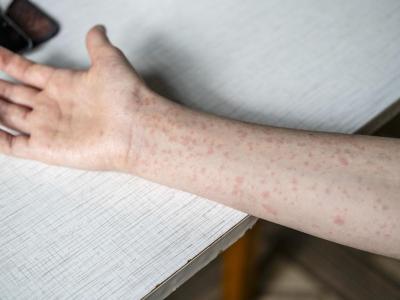Mar 29, 2013 (CIDRAP News) – Federal and state health officials are investigating a multistate Escherichia coli O121 outbreak that has so far sickened 24 people in 15 states and sparked a recall of a New York company's frozen chicken quesadillas and other snacks.
Rich Products Corp, based in Buffalo, has recalled about 196,000 pounds of various heat-treated but not fully cooked mini meals and other snack items, according to a statement yesterday from the US Department of Agriculture (USDA) Food Safety and Inspection Service (FSIS).
E coli O121 is one of the six strains that accounts for 80% of non-O157 E coli infections. The others are O26, O45, O103, O111, and O145.
The US Centers for Disease Control and Prevention (CDC) has estimated that the six strains cause about 112,000 illnesses each year, roughly a third of them linked to ground beef. In 2012 the FSIS started testing beef trim for the six non-O157 strains.
Some of the recalled products fall under US Food and Drug Administration (FDA) jurisdiction, but the FSIS included all of the items in its notice so the public is aware of all the products that may be contaminated. The products, distributed nationally, were made between Nov 12 and 19 but have "best by" dates in May and could still be in consumers' freezers.
Besides the chicken quesadillas, the recalled Farm Rich products include cheese-pepperoni mini pizza slices, Philly cheese steaks in a crispy crust, and mozzarella bites.
The FSIS was notified about the outbreak investigation on Mar 19. It said testing on Farm Rich chicken quesadillas collected from a sick patient's home by the New York State Department of Health Wadsworth Lab yielded the E coli O121 outbreak strain.
Investigations revealed that eight infected patients in Michigan, Mississippi, New York, Ohio, Pennsylvania, Texas, and Virginia reported eating Farm Rich products.
The FSIS said it, the FDA, and the CDC are continuing work on the investigation alongside their partners in New York and other states.
Many state labs don't test for non-O157 Shiga toxin–producing E coli strains because they are harder to identify, the FSIS said. It noted that E coli O121 infections can lead to dehydration, bloody diarrhea, and abdominal cramps for 2 to 8 days after exposure to the bacteria. Some patients can experience hemolytic uremic syndrome (HUS), a potentially fatal kidney complication.
See also:
Mar 28 FSIS news release
















